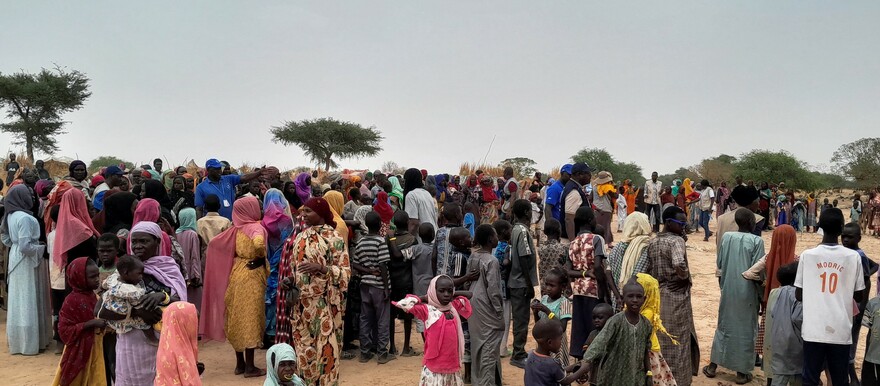Sudanese refugees residing in the Adre camp in eastern Chad are expressing their concerns regarding the dire humanitarian conditions they are facing. These concerns stem from a severe shortage of food supplies and essential medicines.
Speaking to Radio Tamazuj on Monday, Rashida Adam Ibrahim, a political activist and member of the Mayarim Organization for Women’s Development, has confirmed the dire situation. She emphasized the lack of food supplies and essential medicines for conditions like malaria and other chronic diseases among Sudanese refugees.
Rashida mentioned that some displaced families received food rations around four months ago, and those who didn’t register with the United Nations High Commissioner for Refugees (UNHCR) aren’t receiving food during its distribution.
She further explained the gravity of the situation, saying, “The situation is bad in all aspects, as are the other camps, noting the spread of diabetes and heart diseases, and the most affected groups are the elderly.”
Alawiya Mukhtar, the general coordinator of the Darfur Women’s Forum who now resides in the Maji camp, revealed varying reports of Sudanese deaths in several refugee camps in Adre. Mukhtar shared that most of the deaths are due to natural causes. “The number of deaths reached forty cases in each of the Idri, Maadum, Abu Taqi, and Arkam camps,” she noted.
Mukhtar attributed the cause of these deaths to the lack of health services, as the camp is relatively new, and refugees have limited mobility for transporting patients. She expressed the inadequate and challenging living conditions in the camp despite efforts by organizations. Some refugees have been exposed to the elements for more than two months, and the upcoming winter season is a significant concern.
Mukhtar highlighted the vulnerable groups affected by these harsh conditions, including women, children, and the elderly. She mentioned that there have been few cases of rape in the Adre camp. In addition, some refugees face accusations from the host community of entering their farms and using them for open defecation.
“The host communities believe that the lands where the refugees live now belong to them. At times, the people refuse even to build health centers for the refugees, and some accusations are made of cutting down trees,” Mukhtar explained.
Fighting between the Sudanese army and the paramilitary Rapid Support Forces (RSF) erupted on April 15 over tensions linked to a planned transition to civilian rule. It has devastated the capital Khartoum and sparked ethnically driven attacks in the Darfur region.
After nearly six months of fighting, an estimated 9,000 people have been killed and another 5.6 million forced to flee their homes, according to the United Nations.




